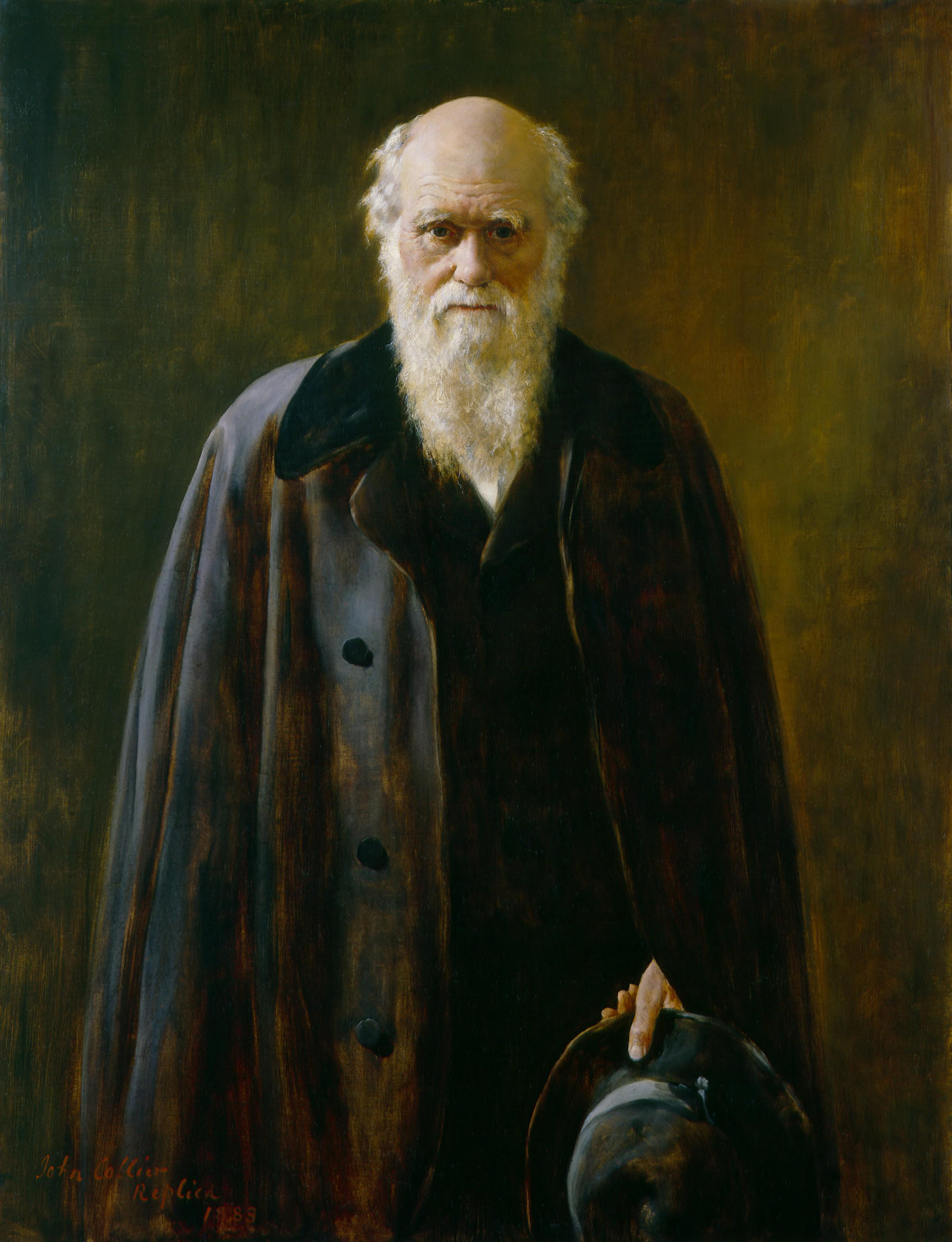 |
John Collier's 1883 portrait of Darwin (National Portrait Gallery, London)
|
Henry B. Eyring's father, Henry Eyring, was a celebrated theoretical chemist who was most well known for developing the Absolute Rate Theory or Transition State Theory of chemical reactions, which was one of the most important developments of 20th-century chemistry. Henry received the Wolf Prize in Chemistry and the National Medal of Science for his work, although the Nobel Prize eluded him. This was surprising to many considering several other chemists doing work based on his findings later received the Nobel Prize.
Henry wrote more than 600 scientific articles, ten scientific books, and a few books on the intersection between science and religion. The following is one of my favorite quotes from his work on that subject:
“There are few ways in which good people do more harm to
those who take them seriously than to defend the gospel with arguments
that won’t hold water. Many of the difficulties encountered by young
people going to college would be avoided if parents and teachers were
more careful to distinguish between what they know to be true and what
they think may be true. Impetuous youth, upon finding the authority it
trusts crumbling, even on unimportant details, is apt to lump everything
together and throw the baby out with the bath.”
"As parents and teachers, we pass on to our children and pupils our world picture. Part of this picture is religious and part of it deals with the world around us. If we teach our pupils some outmoded and nonessential notions that fail to hold water when the students get into their science classes at the university, we run grave risks. When our protégés shed the bad science, they may also throw out some true religion. The solution is to avoid telling them the world is flat too long after it has been proved round. Don’t defend a good cause with bad arguments.
So, I am certain that the gospel, as taught in The Church of Jesus Christ of Latter-day Saints, is true. It’s a better explanation of what I observe in science than any other I know about. There are still lots of things I don’t know, but that doesn’t bother me. I’m a happy muddler. The gospel simply asks me to find out what’s true as best I can and in the meantime to live a good life. That strikes me as the best formula for living there could be.”
-Henry Eyring Sr.
“What Are the Things That Really Matter?" and Reflections of a Scientist. (Salt Lake City: Deseret Book Co., 1983), p. 103.
"As parents and teachers, we pass on to our children and pupils our world picture. Part of this picture is religious and part of it deals with the world around us. If we teach our pupils some outmoded and nonessential notions that fail to hold water when the students get into their science classes at the university, we run grave risks. When our protégés shed the bad science, they may also throw out some true religion. The solution is to avoid telling them the world is flat too long after it has been proved round. Don’t defend a good cause with bad arguments.
So, I am certain that the gospel, as taught in The Church of Jesus Christ of Latter-day Saints, is true. It’s a better explanation of what I observe in science than any other I know about. There are still lots of things I don’t know, but that doesn’t bother me. I’m a happy muddler. The gospel simply asks me to find out what’s true as best I can and in the meantime to live a good life. That strikes me as the best formula for living there could be.”
-Henry Eyring Sr.
“What Are the Things That Really Matter?" and Reflections of a Scientist. (Salt Lake City: Deseret Book Co., 1983), p. 103.









0 comments:
Post a Comment